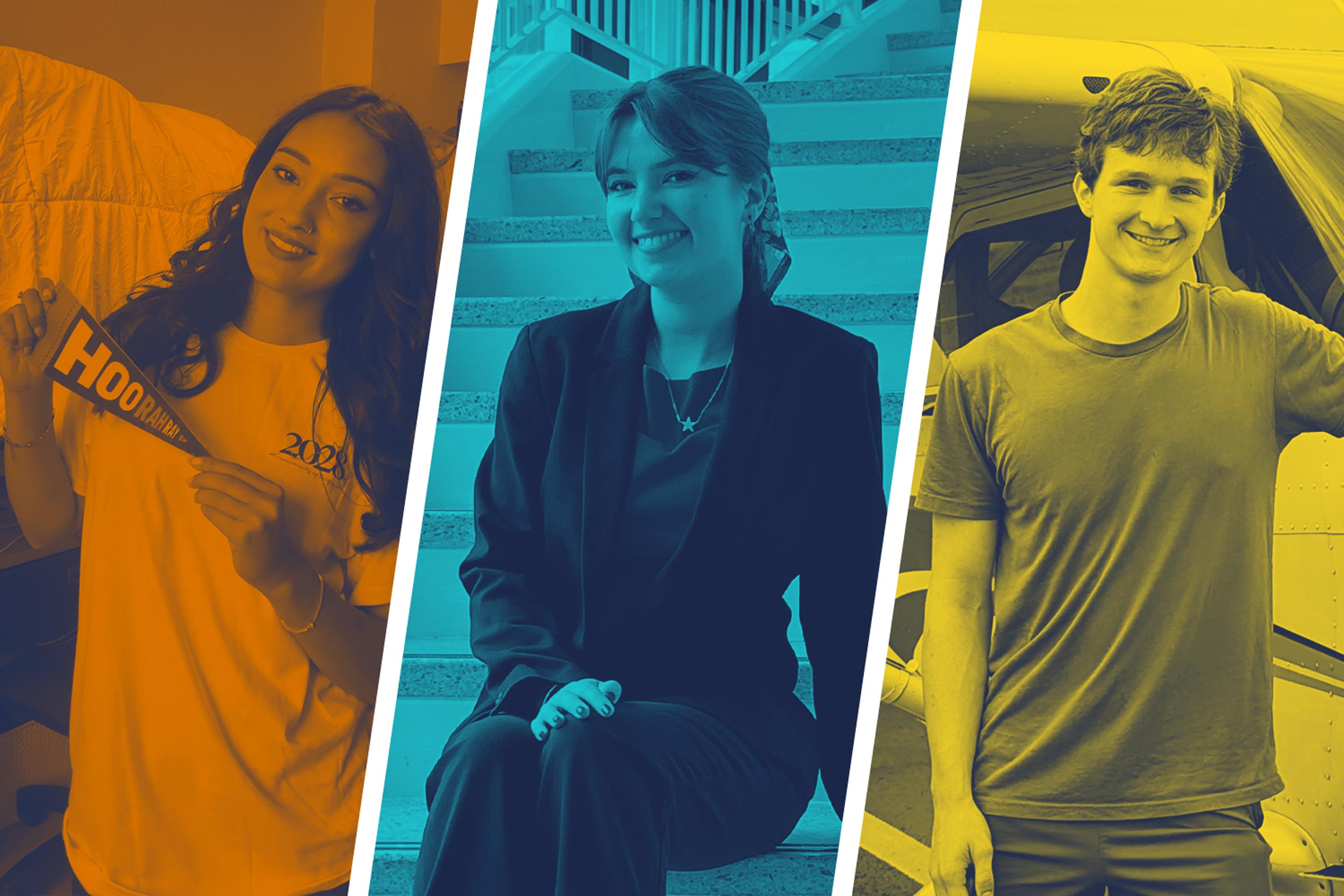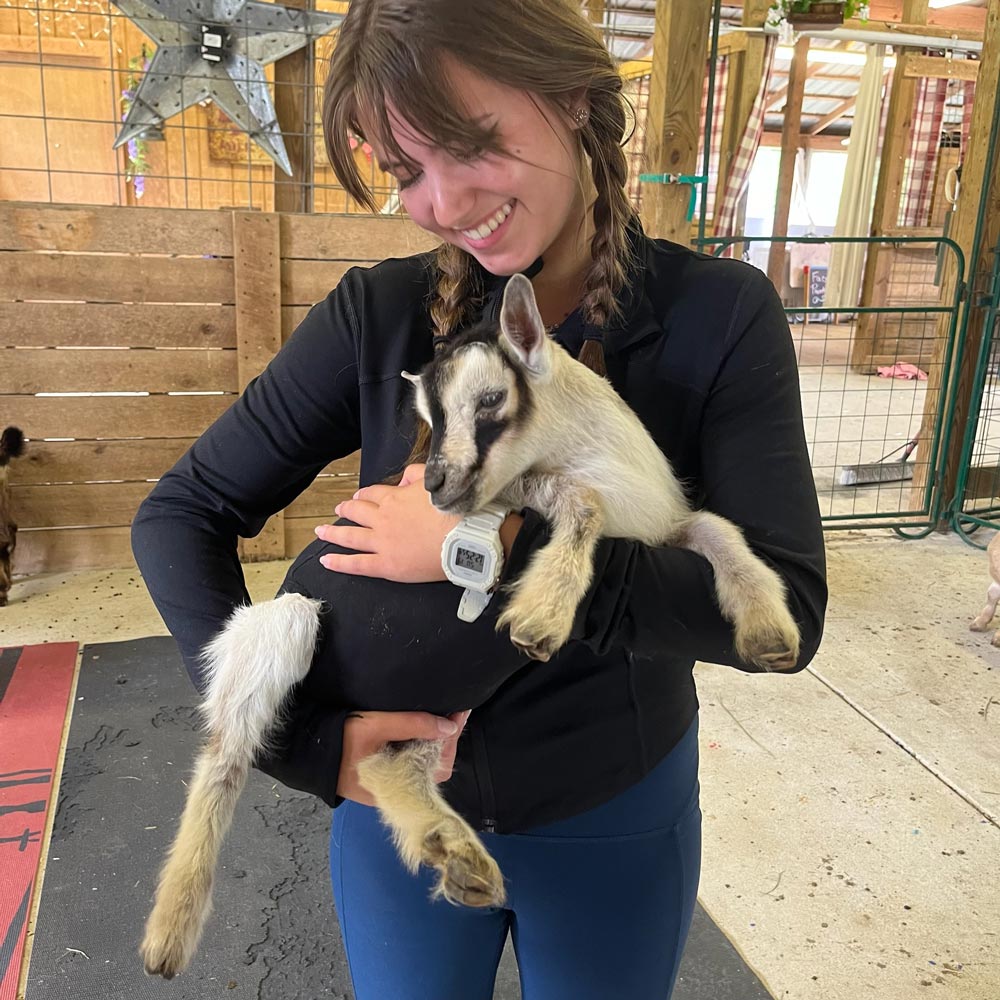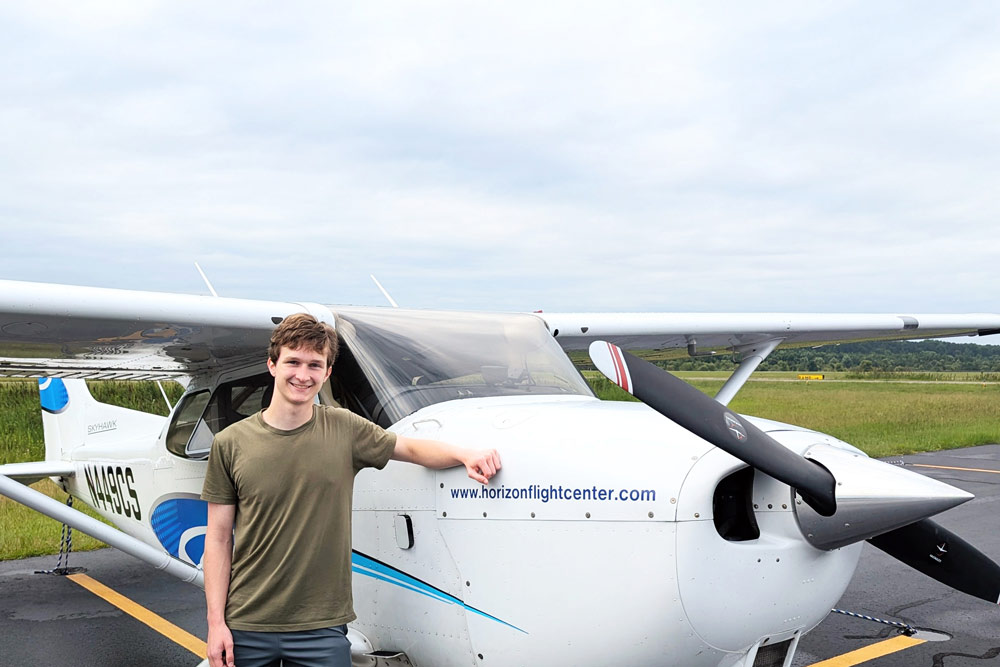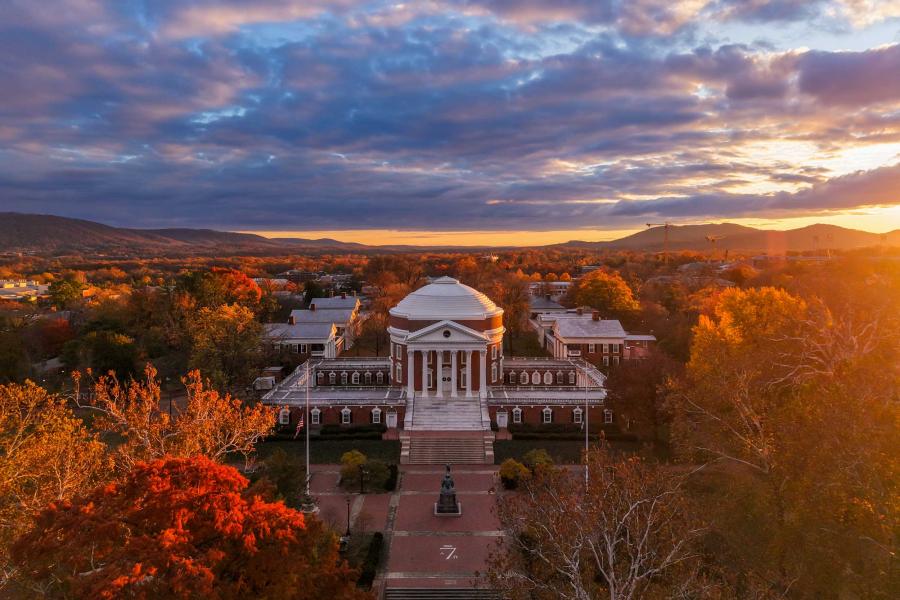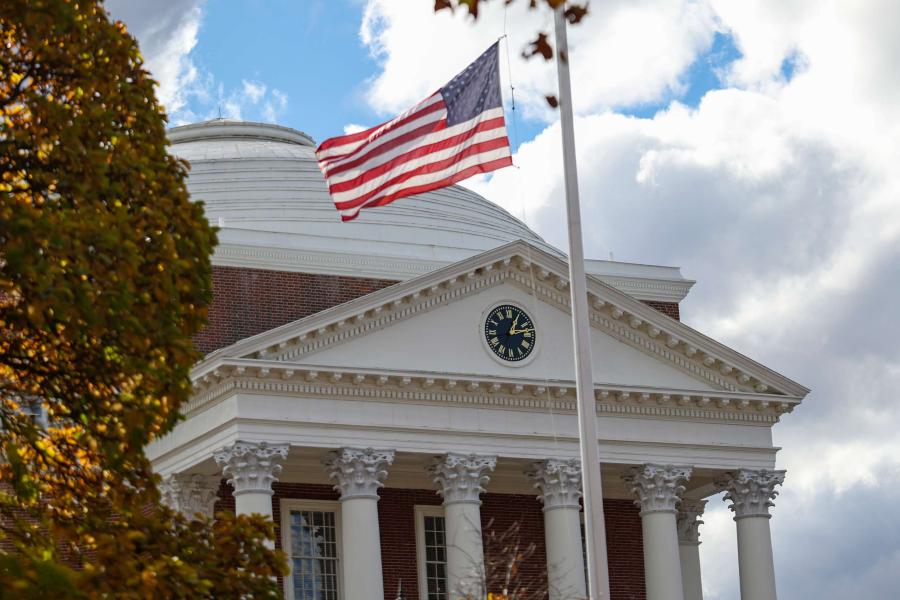“These students earned admission on the strength of their achievements and potential, and their ability to contribute to the education and experience of their classmates and the mission of the University,” Stephen Farmer, vice provost for enrollment, said.
Nearly a quarter of the class, 24%, qualified for Pell Grants for lower- and lower-middle-income students, also up from 14% from five years ago. And 13% of the class comes from households with annual incomes at or below 200% of federal poverty guidelines, compared to 9% five years ago.
“This class is perhaps the most socioeconomically diverse class in our history,” Farmer said.
The new Wahoos hail from 99 countries and jurisdictions, and six native nations. Most of the class – 66% – are from Virginia.
99
Different Countries or Jurisdictions
UVA’s expansion of financial aid and the availability of scholarships through Access UVA remain key factors in bringing a diverse class to Grounds, Farmer said. The University also recruited, through the All Virginia program, from Virginia high schools in lower-income areas of the state where students do not typically apply to the University.
And Farmer cited “the extraordinary efforts of UVA’s Student Financial Services in helping students navigate profound problems with the new Free Application for Federal Student Aid,” or FAFSA. The government retooled the application, but the rollout was mired in technical glitches and ongoing delays which upended the college-admissions cycle nationwide and left millions of students unsure how they would afford college.
Students who identify as Hispanic, Latino, Latina or Latinx make up nearly 10% of the class, an increase of 2.2% from last year. Black or African American students comprise 9.4%, a slight decrease of 1.4%.
10%
Students Identifying as Hispanic, Latino, Latina or Latin X
9.4%
Black or African American Students
Farmer said UVA admissions officers collaborated with colleagues across Grounds, ramping up efforts to increase the number of accepted students who eventually choose to attend UVA.
“The percentage of admitted students who chose to enroll rose sharply, likely as a result of collaborative recruitment by current students, faculty and staff, as well as improved financial aid and renewed efforts by the Office of Undergraduate Admission to welcome admitted students to Grounds,” Farmer said.
Many of the incoming students, like Karki, grew up in families that spoke a language other than English. There are 68 first languages represented in the class.
While English vexed her, numbers drew her in. Mathematics was a language Karki understood and excelled at. She graduated from high school in Reynoldsburg, Ohio, where her family had moved, as an honor roll student with a 4.3 grade-point average. She accomplished that while applying to colleges on her own, helping manage the household budget, and tutoring and cooking for her 12-year-old brother, Daniel, while her parents worked.
Karki is one of the first recipients of the University’s new Davis First-Generation Scholarship, established with a $5 million grant from the Shelby Cullom Davis Charitable Fund Inc. The fund aims to attract top-rate, first-generation students to UVA.
She said she will miss her family terribly and wants more than anything to give back to them “because of everything they’ve done for me. Because I know how hard it was to live in a refugee camp and come here without knowing the language,” she said. “I think I got everything they never had, like education.”
Listening to All Sides
Last summer, Lilly Brame of New Kent was one of just 31 students from across the state selected to attend the High School Leaders Program at UVA’s Sorensen Institute for Political Leadership.
A teacher at her high school suggested she apply for the program, not knowing Brame was passionate about public policy.
“My favorite thing that we did probably was the mock senate,” she said excitedly. “We split up and had to make bills and pretend to be a state senator. We would create our bills based on what that senator would want and then we would try to get our bills passed.”
At the end of the program, the leaders of the program named Brame the person with the best political instincts. “One of my biggest things in policy is hearing all the sides because there’s so much partisanship and people don’t want to hear the other side of what they’re actually disagreeing with,” she said. “I like to think that it was because of that (that I got the award). I wanted to fully understand what everyone was thinking.”
Brame said she is looking forward to studying public policy at UVA. She’s also looking forward to joining some clubs.
“I want to get really involved. I do not plan on having an empty schedule,” she said. The captain of her varsity tennis team at New Kent High School, she wants to play club tennis. “I also want to join the Sustainable UVA program. I got to talk to them during orientation and they sounded really, really cool.”
A Tough Choice
Will Crouch faced a difficult decision. The Norfolk Academy student had struggled in middle school. A diagnosis of ADHD and the accompanying treatment turned things around. He was able to focus and his grades improved dramatically.
His longtime dream was to earn his pilot’s license. But there was a problem: He could not earn the required medical certificate if he was taking his medication.
“You can’t get approved for any type of medical certificate with ADHD meds of any kind, just full stop,” he said.
With the support of his parents, Crouch weaned himself from his medicine at the end of his freshman year and doubled down on his school studies, putting a greater emphasis on time management.
“I guess with college on the horizon, the threat of losing my ability to fly by having to go back on the meds and waive my medical certificate gave me the drive and really push through it,” he said. He recently earned his pilot’s license from the Horizon Flight Center and graduated high school with a grade-point average of 3.96.
Crouch, who wants to study either engineering or medicine and join UVA’s club rowing team, said he learned an important lesson about himself: ADHD does not define him.
